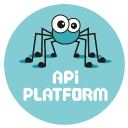Top Prisma GraphQL API Alternatives for Modern API Development
Prisma GraphQL API has been a popular choice for developers looking to quickly turn their database into a production-ready GraphQL API. With its type-safe API, declarative SDL for data modeling, real-time subscriptions, and advanced API composition, Prisma offers a robust solution for building scalable GraphQL backends. However, the diverse landscape of modern web development often calls for exploring other options that might better suit specific project requirements, budget constraints, or preferred technology stacks. Whether you need more control, a different feature set, or a more cost-effective solution, there are excellent Prisma GraphQL API alternatives available.
Top Prisma GraphQL API Alternatives
If you're considering moving beyond Prisma GraphQL API or are simply looking for a solution that aligns more closely with your development philosophy, here's a curated list of top alternatives that offer compelling features for your API development needs.

Firebase
Firebase offers a comprehensive suite of tools and infrastructure for building better apps, making it a powerful Prisma GraphQL API alternative, especially for mobile and web development. It provides a Backend as a Service (BaaS) with features like a NoSQL database, real-time capabilities, REST API, and scalability. While not exclusively a GraphQL solution, its robust backend services can support GraphQL implementations, particularly for those needing a managed, scalable solution (Freemium, Web).

Strapi
Strapi is the most popular open-source Headless CMS, offering a fantastic Prisma GraphQL API alternative for developers who value flexibility and self-hosting. It provides a GraphQL API out-of-the-box, allowing developers to define their content structure and automatically generate a GraphQL endpoint. Being open-source and self-hosted, it gives complete control over your data and infrastructure, supporting NodeJS for backend development (Free, Open Source, Self-Hosted).

Contentful
Contentful is a commercial, web-based content management system that excels in cross-platform and multi-device online publishing. While it doesn't primarily focus on turning databases into GraphQL APIs like Prisma, it offers a robust API for accessing content, making it a strong contender for content-driven applications requiring a headless CMS. It's a great choice for businesses that need a powerful, managed solution for content delivery (Commercial, Web).

Sanity.io
Sanity.io is a hosted backend for structured content with a real-time API and a powerful query language, functioning as a headless CMS. It’s an open-source, Freemium platform that, while not directly analogous to Prisma's database-to-GraphQL transformation, provides a highly flexible and scalable content API. Its focus on structured content and real-time capabilities makes it an excellent choice for dynamic applications (Freemium, Open Source, Web).

PostGraphile
PostGraphile is a compelling open-source Prisma GraphQL API alternative for PostgreSQL users. It automatically builds and serves a client-facing GraphQL API by introspecting your existing PostgreSQL database, including tables, columns, relations, views, and procedures. This 'no configuration' approach makes it incredibly fast to get a GraphQL API up and running, directly from your database schema (Free, Open Source, Linux, Self-Hosted, PostgreSQL).

Fast.io
Fast.io focuses on managing static files on major cloud platforms with CDN integration. While not a direct GraphQL API generator like Prisma, it's a Software as a Service (SaaS) solution (Freemium) that simplifies cloud storage and web hosting. It can complement a GraphQL API by efficiently serving static assets for your application (Freemium, SaaS).

Prismic
Prismic is a web-based CMS backend that provides an API-first approach, similar to headless CMS solutions. It focuses on offering design and technology freedom for developers while providing an excellent user experience for content editors. Prismic (Freemium) includes features like content scheduling, built-in translation, and file versioning, making it a strong alternative for content-rich applications that need a flexible content API (Freemium, Web).

MeshyDB
MeshyDB offers MongoDB functionality via RESTful API calls, allowing for quick integration with your app. As a Software as a Service (SaaS) solution (Free, Web, Android, iPhone), it provides a NoSQL database with features like OpenID Connect, a permission system, and user roles. While it's a REST API solution rather than GraphQL, it serves as a powerful backend for applications needing a scalable and managed NoSQL database (Free, Web, SaaS).

GraphCMS
GraphCMS is a headless CMS built on GraphQL, providing a hosted GraphQL content API for your sites and apps. It offers content editors intuitive tools, making it a compelling Prisma GraphQL API alternative for projects prioritizing content management alongside a robust GraphQL API. GraphCMS (Freemium) includes features like a Mutation API, built-in editors, and full GraphQL support (Freemium, Web).

API Platform
API Platform is a next-generation web framework designed for creating API-first projects with extensibility and flexibility. It's an open-source, self-hosted solution that supports both GraphQL and REST APIs, making it a versatile Prisma GraphQL API alternative. It's particularly strong for PHP developers looking to design their own APIs with a robust framework (Free, Open Source, Self-Hosted).
Each of these Prisma GraphQL API alternatives offers unique strengths, from full-fledged backend services to specialized headless CMS solutions and direct database-to-GraphQL converters. Your choice will ultimately depend on your project's specific needs, whether you prioritize ease of use, open-source flexibility, specific database integrations, or comprehensive content management capabilities. Explore them to find the best fit for your next API development project.